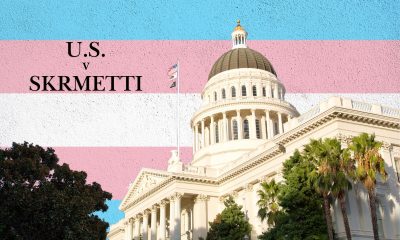Arizona
Arizona Legislature sends two anti-Trans bills to governor
“We’re talking about legislating bullying against children who are already struggling just to get by” one lawmaker said
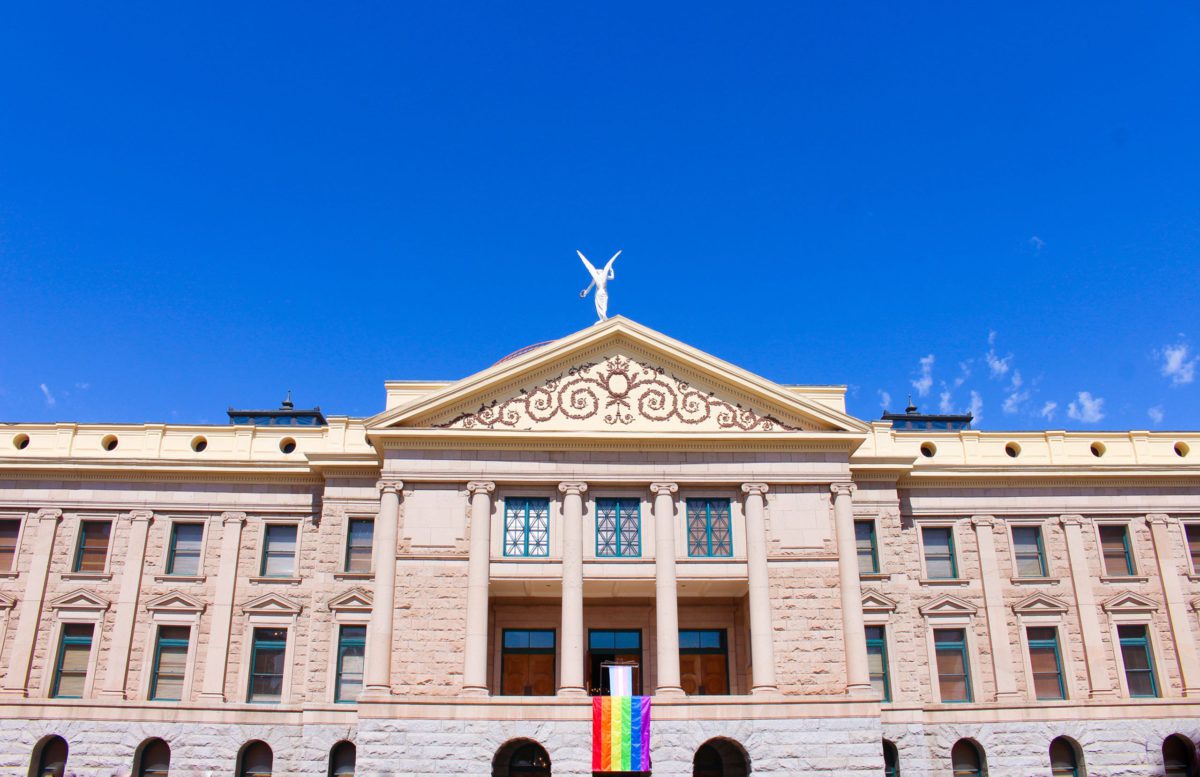
PHOENIX – The Arizona House of Representatives passed two anti-Trans bills Thursday – one prohibiting gender-affirming surgery for minors (S.B. 1138) and the other baring Trans students from participating on girl’s sports teams (S.B. 1165) – sending both to Republican Gov. Doug Ducey.
Both pieces of legislation cleared the Senate last month, leaving the bills’ fate to Ducey, who has not signaled whether he will sign either.
Earlier this week, two GOP governors – Indiana Gov. Eric Holcomb and Utah Gov. Spencer Cox – broke from their party and vetoed anti-Trans sports bills. The Human Rights Campaign (HRC), the nation’s largest LGBTQ+ organization, urged Ducey to follow the likes of Holcomb and Cox and veto the two measures.
Republican attacks on Trans youth, primarily targeting their healthcare and participation in sports, have continued after a record-breaking year for anti-LGBTQ+ legislation in states. In 2022 so far, state lawmakers have proposed nearly 240 anti-LGBTQ+ bills, according to an NBC News analysis.
Proponents of anti-Trans sports bills argue they are necessary to keep “fairness” and “integrity” in women’s sports. Supporters of gender-affirming care bans say they will prevent children from decisions they may regret, equating the treatments to “mutilation” or “child abuse.”
During the debate on S.B. 1138, Republican Rep. John Kavanagh made similar comparisons, saying: “We should stand the same way today because this is mutilation of children. It is irreversible. It is horrific.”
However, critics pushed back against Kavanagh’s argument, saying a child’s health care should be left to parents and the decisions are not hasty ones.
“We’re talking about our kids, who are already going to be taking the proper steps with their parents to be able to be who they are,” said Democratic Rep. Andres Cano.
Though Republicans in several states – including Texas and Alabama – have pushed for such bans on gender-affirming care for minors, many top medical associations support the treatments for Trans and nonbinary youth. LGBTQ+ advocates call gender-affirming care “essential” and “life saving.”
S.B. 1165 brought similar partisan divides, with Republicans championing the bill’s passage. Over the last few years, Republicans have progressively pushed harder for bans on Trans women and girls playing sports — reaching a new peak with Trans University of Pennsylvania swimmer Lia Thomas, who has set collegiate records.
“This bill to me is all about biology,” said Republican Rep. Shawnna Bolick. “In my opinion, it’s unfair to allow biological males to compete with biological girls sports.”
Democrats accused the legislation of dehumanizing Trans youth and creating a problem that doesn’t exist in the state.
“We’re talking about legislating bullying against children who are already struggling just to get by,” said Democratic Rep. Kelli Butler.
The HRC released a statement condemning the passage of both bills.
“Arizonans deserve better than legislators who are seeking to bully transgender youth with politically motivated bills for the sake of discrimination itself,” said Bridget Sharpe, HRC Arizona state director. “Caught in the crosshairs of anti-LGBTQ+ elected officials’ divisive political strategy are vulnerable kids who are simply trying to navigate their adolescence. We urge Gov. Ducey to do the right thing and veto these harmful bills.”
Arizona
Trying to avoid LGBTQ+ issues, schools denying basic sex-ed
Superintendents pointed to anti-LGBTQ+ culture wars and fear of repercussions as reasons why kids are not being taught sex-ed
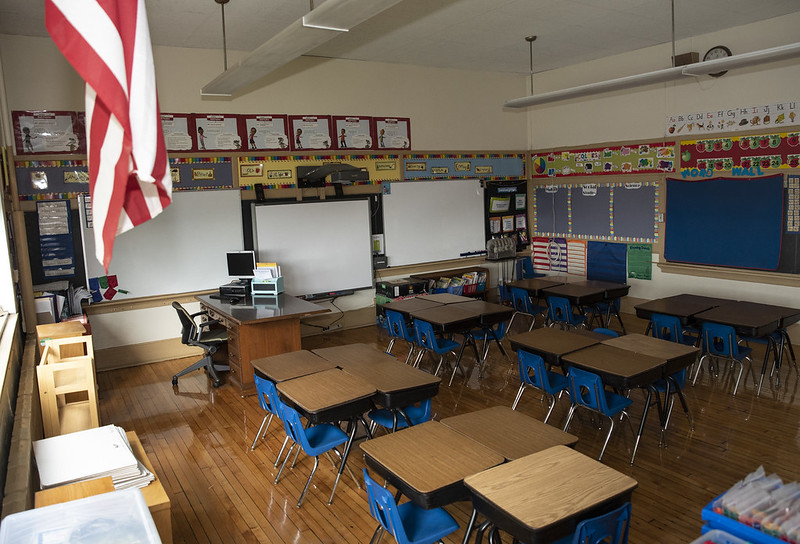
By Shelby Rae Wills/LOOKOUT | PHOENIX, Ariz. – A LOOKOUT investigation shows that tens of thousands of youth attending the state’s public schools are not receiving nationally recommended sexual education studies, specifically in regards to gender, sexuality, and consent. Educators have used the heated politics around LGBTQ+ issues as an excuse for denying students the curriculum.
Out of 18 public school districts across Arizona in rural, suburban, and urban areas that LOOKOUT analyzed, eight districts—representing at least 37,000 school-aged children in suburban and rural parts of the state—responded and said they do not offer any kind of sex education, currently.
Those districts are: Duncan, Heber-Overgaard, Gila Bend, Ganado, Parker, Nogales, Kingman and Scottsdale.
The number of students not receiving proper sex education illustrates the effect of how schools are grappling with the politics of the time, and failing to give youth lessons about their bodies and prevent disease.
But even in urban areas where sex education is offered, such as parts of Maricopa and Pima counties, instead of offering the courses themselves, schools have turned to third-party groups to provide the education. But advocates and experts interviewed said that discussions have been limited because of both state regulations and school districts’ fears of finding themselves the focus of far-right critics who have provoked harassment of employees at school board meetings or on school grounds.
As a result, queer students—which some estimates list Arizona’s LGBTQ+ youth population at 44,000, including as many as 20,000 trans and nonbinary people under 24 years old in the state—are most at risk.
“Arizona sex education needs to change because sexual health disparities are pretty grave in our state,” said Courtney Waters, an assistant research professor at the University of Arizona. “Sexual health outcomes are bad across the state for youth, but we see it specifically among LGBTQ+ youth.”
What we found
There are 261 school districts in Arizona, ranging from the most populous, Mesa Public Schools, to the Young Public School District that serves roughly 50 students a year.
Districts that choose to teach sexual education have to go through a bureaucratic process that involves district meetings, public forums, parental guidance, and administrative oversight. LOOKOUT reported this year that those processes are marred with confusion and allows districts to forgo teaching sex education if they believe the “community interest” doesn’t align.
The result is tens of thousands of students who aren’t educated on preventative sexual health tools while HIV, syphilis, and unintended pregnancy rates locally continue to rise above the national average. LGBTQ+ students, specifically, are also more at risk of unintended pregnancy, STI transmission, and domestic abuse.
Of the schools LOOKOUT found that teach sex education, not all of them offer inclusive or comprehensive sexual health studies. Instead, they only focus on puberty and body changes, along with STI education without a focus on prevention or treatment.
Educational and youth organizations that focus on LGBTQ+ students have pointed to the state’s repeal of its “No Promo Homo” law, which catapulted a local conservative movement to restrict how students could learn about sexual health.
Arizona’s law—which was similar to Florida’s current law that advocates refer to as the “Don’t Say Gay” bill—was repealed with bipartisan support in 2019. But far-right lawmakers and lobbying groups successfully pushed for stricter scrutiny of what could be taught in schools in regards to sexual material, including in biology and health classes.
Nate Rhoton, CEO of the LGBTQ+ youth advocacy nonprofit One∙n∙Ten, said that since the law’s repeal school districts haven’t been equipped to handle what he called “the storm or frenzy” from “‘concerned parents’ about teaching affirming and inclusive sexual health education.”
As a result, he said, school districts have “walked away” from providing classes.
In an example, Parker Unified School District, which is located just south of Lake Havasu City, decided not to offer sex education in the past because they didn’t have a certified health teacher to lead the class.
“Instead of trusting that information to a substitute teacher just off the street, we did not do it,” according to Superintendent Brad Sale.
By simply ignoring our community through education, you’re doing a lot more harm to all students. – Nate Rhoton, CEO of One∙n∙Ten
But more recently, conservative arguments around gender, sex, and LGBTQ+ youth have chilled any movement on offering a curriculum, Sale said: “That was several years ago, and because of the political climate with that, we as a district have decided not to offer it.”
Southern Arizona sex educator Hannah Woelke explained that this is a common refrain: “Everyone knows it’s a problem. Parents know, teachers know,” Woelke said. “But nobody has the stomach to really do anything about it because it’s such a fight.”
An Arizona problem
Maricopa County has a higher incidence rate of sexually transmitted infections compared to the nation by more than 30%, according to the Arizona Department of Healthcare Service’s online data portal.
And younger people in the region are most at risk. Data from the portal showed STI cases are most common for Arizona women aged 15-24 (including trans women) and men aged 20-29 (including trans men).
The same pattern appears in rural areas such as Navajo County, where LOOKOUT identified at least one school district without a sex education curriculum. Residents there had a 37.6% higher STI rate than the state average. Most new STI cases among residents were those aged 15-24, according to the state health department.
People living there also experience a 65% higher rate of unintended pregnancies among youth than the national average, according to research from Making Action Possible by the University of Arizona.
Arizona also has the sixth highest rates of contracting syphilis in the country according to the Centers for Disease Control and Prevention’s 2022 breakdown.
Public health experts interviewed said that many of the problems the state faces with youth and sexually transmitted disease as well as unintended pregnancies could be solved in part by proper education in schools. But since the state pushes those decisions to local school districts, they said, the end result is a patchwork of classes and curriculum that is determined by the social politics of an area.
In a state report, the Sexuality Information and Education Council of the United States said that Arizona’s “local control over sex education presents unique challenges that have resulted in a glaring disparity regarding the quality of sex education that students receive.”
SIECUS said that Arizona’s policy of ceding sex education from the state also “allows for the implementation of policies and curriculum that stigmatize marginalized youth, such as students of color and LGBTQ youth.”
Rural school districts such as in Duncan and Parker and larger districts in Scottsdale and Nogales have gone since at least 2015 without letting students and families opt in to sex education.
Superintendents listed reasons such as lack of interest from the community in offering sex ed, but went on to list secondary reasons such as navigating the changing laws and the desire to avoid additional stress to teachers’ workload amid a teaching shortage and pressure to shut down discussions on gender and sexuality.
And in the process of avoiding LGBTQ+ topics, the result is all students being left behind, Rhoton with One∙n∙Ten said: “By simply ignoring our community through education, you’re doing a lot more harm to all students.”
Who’s helping?
In metropolitan areas, there are organizations that try to fill gaps in the state’s health education.
In the Phoenix area, One∙n∙Ten offers monthly sexual health classes for LGBTQ+ youth and their families called “SexFYI.” The program divides people up between older teens and young adults between 18 and 24 years old to discuss consent, gender identity, internet safety, and building healthy relationships.
SexFYI is run in partnership with Affirm—formerly Arizona Family Health Partnership—and the Maricopa County Health Department. It’s only offered outside of schools.
In Pima and Maricopa counties, the Southwest Institute for Research on Women collaborates with Southern Arizona AIDS Foundation and El Rio Health to offer a program called “Spectrum+.” The program’s website claims it offers “culturally-driven comprehensive sexuality education,” including topics on HIV, hepatitis C, substance use, and LGBTQ+ care.
Those programs are also offered outside of schools.
SIROW Assistant Research Professor Courtney Waters explained that these programs often exist outside of a school setting because, “there’s a lot of rules at the public schools about having sex education. The legislation is rather unclear and there’s just a lot of fear around what they can and can’t do.”
“Education is such a key piece of reducing those disparities and our state has had really conservative rules around sex ed for decades and it doesn’t really seem to be serving anyone,” Waters said. “We see much better outcomes in other states that have more inclusive and comprehensive sex ed.”
SIROW receives $500,000 annually for five years from a federal grant by the Substance Abuse and Mental Health Services Administration. They work alongside groups such as the Family Pride Initiative, which also received a $425,000 federal grant from the same agency to offer counseling to queer youth, education on LGBTQ+ health, and train caregivers outside of schools.
Within schools, though, Arizona Youth Partnership has provided sex and relationship education in the state for three decades. Last year over 3,000 students participated in two of their programs aimed at healthy relationships or sexual violence.
But just because those programs exist inside school districts does not necessarily mean that youth are given the best tools for understanding their bodies, especially LGBTQ+ students.
Development and Communications Director at Arizona Youth Project Jetzabel Ramos said that getting schools to partner with them has been made more difficult after the pandemic and with the rise of the parental rights movement.
And Division Director Sara Sherman said state regulations bar them from discussing same-sex relationships in the classroom or answering questions about same-sex relationships if they arise: “We can tell them to go to a trusted adult, but not all students have a trusted adult in their life.”
These restrictions, sources said, have raised concerns that in the absence of evidence-based, medically accurate, inclusive sex education children have turned to the internet for information.
Sherman said she has seen this play out in the classroom, “When we read these questions that we’re getting from students, it’s shocking the misinformation that they’re getting from the digital space.”
******************************************************************************************

Shelby Rae Wills moved to Phoenix in 2022 to pursue their Master’s degree in Investigative Journalism. They taught English in California and in Eastern Europe through the Peace Corps.
******************************************************************************************
This article was originally published by LOOKOUT, a nonprofit queer-focused news organization covering Arizona’s LGBTQ+ communities. Sign up for their free newsletter. Republished from the Arizona Mirror with permission.
The Arizona Mirror is amplifying the voices of Arizonans whose stories are unheard; shining a light on the relationships between people, power and policy; and holding public officials to account.
Arizona Mirror is part of States Newsroom, the nation’s largest state-focused nonprofit news organization.
Arizona
LGBTQ anti-discrimination laws have public support: Arizona none?
More than 20 years of attempts to get protections in place have failed as queer lives become more politicized
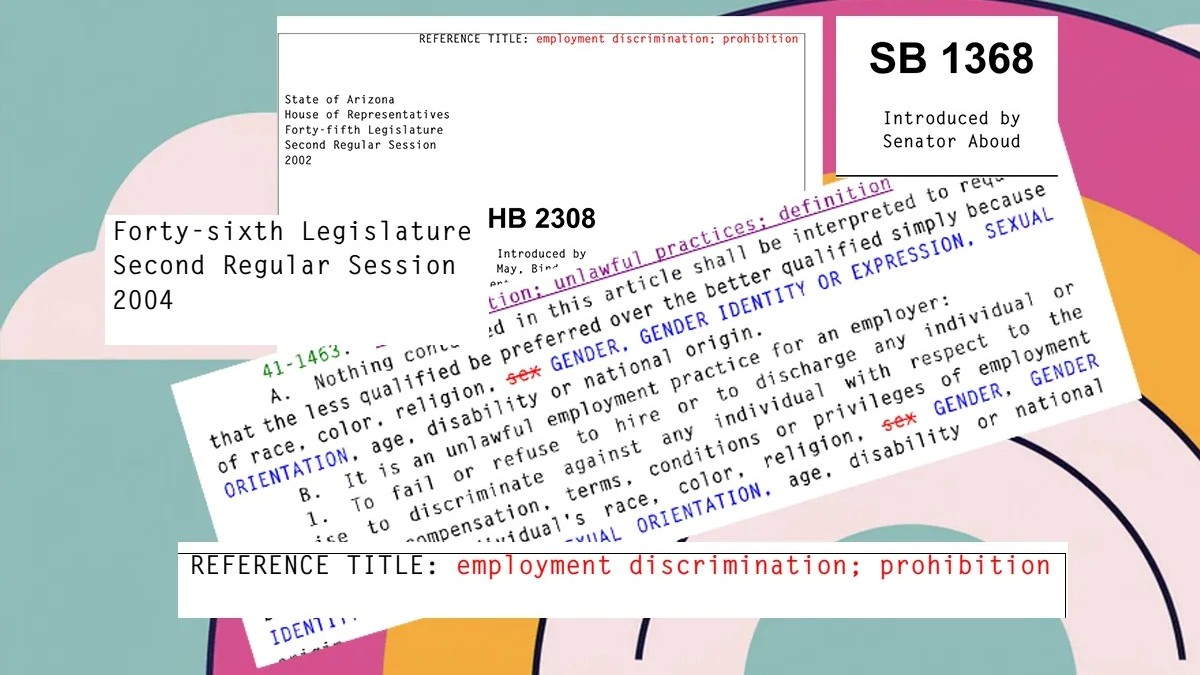
By Juliette Rihl/LOOKOUT | PHOENIX, Ariz. – Twenty-two states have comprehensive LGBTQ+ civil rights laws on the books. Arizona, though, is not one of them.
The fight to pass an anti-discrimination bill is now more than twenty years old here. Since at least 2002, Arizona lawmakers—mostly Democrats, but also some Republicans—have repeatedly introduced bills that would include sexual orientation and gender identity among the state’s protected classes, such as race, sex, and religion. And although those bills varied in scope, they would have generally protected LGBTQ+ people from discrimination in employment, housing, or public accommodations.
But none of those bills went anywhere.
Instead, protection within the state is enforced by local municipalities; only 11 Arizona cities have ordinances that indicate being LGBTQ+ as a protected class.
Civil rights advocates say a comprehensive statewide anti-discrimination law is necessary. The urban cities that provide protections only account for half of the state’s general population, and research shows LGBTQ+ adults—especially in rural areas—are more likely to experience unemployment or homelessness compared to others.
And though there is competing data on whether or not nondiscrimination bills actually do what they intend, advocates say that it’s better to have something than nothing.
ONCE BIPARTISAN, NOW ONE-SIDED
Employment protections for LGBTQ+ people exist at the federal level, but if the Supreme Court were to roll back those protections it could leave queer people vulnerable, similar to when states saw local abortion laws triggered after Roe v. Wade was overturned.
Darrell Hill, policy director for the American Civil Liberties Union of Arizona, expressed the importance of a statewide law to avoid that, and protect people from experiencing homelessness or joblessness: “These are very serious consequences of discrimination,” he said.
There was a time when anti-discrimination bills did seem like they could have been a reality with Republican support.
In 2002, when Republicans held a supermajority in the House, six of them signed onto a nondiscrimination House bill with Democrats. However, the bill was never brought up for a vote and died in committee.
That support has since dwindled significantly. Between 2018 and 2022, bills that would have provided protections in employment, housing, and public accommodations had at least one member of each party backing them.
And over the past two years, amid an onslaught of anti-LGBTQ+ bills in the Arizona legislature, Republican support for a bill to protect queer people from discrimination has gone from slim to nonexistent. Even openly gay Republican lawmaker, state Rep. Matt Gress (R-Phoenix), did not support any of the three bills introduced by Democrats the last two sessions.
And attempts to make the legislation bipartisan have been stymied, said state Rep. Oscar De Los Santos (D-Phoenix) who also is the co-chair of the LGBTQ+ Legislative Caucus. He said he reached out to Gress to try to gain support for HB2625, an anti-discrimination bill introduced this past session. Gress did not respond, he told LOOKOUT.
De Los Santos said Republicans who would otherwise support the legislation might be afraid to go against their party. He noted that Republican leadership recently removed Gress from the House Appropriations Committee in April after voting alongside Democrats to repeal the state’s near-total abortion ban.
Gress did not respond to multiple requests for comment from LOOKOUT.
WHAT WILL IT TAKE?
Seventy-seven percent of Arizonans favor laws protecting LGBTQ+ people from discrimination, according to a 2022 survey by the nonprofit public opinion research institute PRRI.
So why hasn’t something happened?
“As a matter of reality it’s going to take us to flip the legislature,” De Los Santos said.
Politicians on both sides of the aisle agree, especially as Republicans aligned with the state’s “Freedom Caucus” wield more power and move farther to the right on social issues, such as limiting transgender health care or criminalizing drag in public areas.
State Sen. John Kavanagh (R-Fountain Hills) who is associated with the state’s Freedom Caucus, said he and his colleagues disagree with a bill to provide protections for LGBTQ+ Arizonans. He was the only Republican to respond to LOOKOUT’s request for comment.
“I don’t think it would be good public policy, in that it would take away some people’s freedom of association, and it would generate lawsuits, and it would step on some people’s religious principles,” he said. A bill that did give religious exemptions was introduced last session, but Kavanagh still didn’t support it.
Kavanagh was the first lawmaker in the nation to propose a bathroom ban for trans students, and was the sponsor of multiple anti-LGBTQ+ bills this year, including one that would “out” queer kids to parents. Most of his bills passed the legislature but were vetoed by Gov. Katie Hobbs, a Democrat.
Rep. Analise Ortiz (D-Phoenix), and State Rep. Lorena Austin (D-Mesa), both members of the LGBTQ+ Legislative Caucus, agreed that Democratic control is necessary to getting the legislation passed: “Republicans have repeatedly shown their complete refusal to pass even the most low-level bills that would support the LGBTQ+ community,” Ortiz said.
This article was originally published by LOOKOUT, a nonprofit queer-focused news organization covering Arizona’s LGBTQ+ communities.
******************************************************************************************

Juliette Rihl is a freelance journalist for LOOKOUT focused on equity issues. She was named Pennsylvania’s emerging reporter of the year in 2021.
******************************************************************************************
The preceding article was previously published by the Arizona Mirror and is republished with permission.
Amplifying the voices of Arizonans whose stories are unheard; shining a light on the relationships between people, power and policy; and holding public officials to account.
Arizona Mirror is part of States Newsroom, the nation’s largest state-focused nonprofit news organization.
Arizona
AZ Sen. used Senate’s broadcast facility to bash drag performers
Glendale Republican lawmaker used the state Senate’s broadcast facility to bash drag performers with a pro-Hitler talk show host
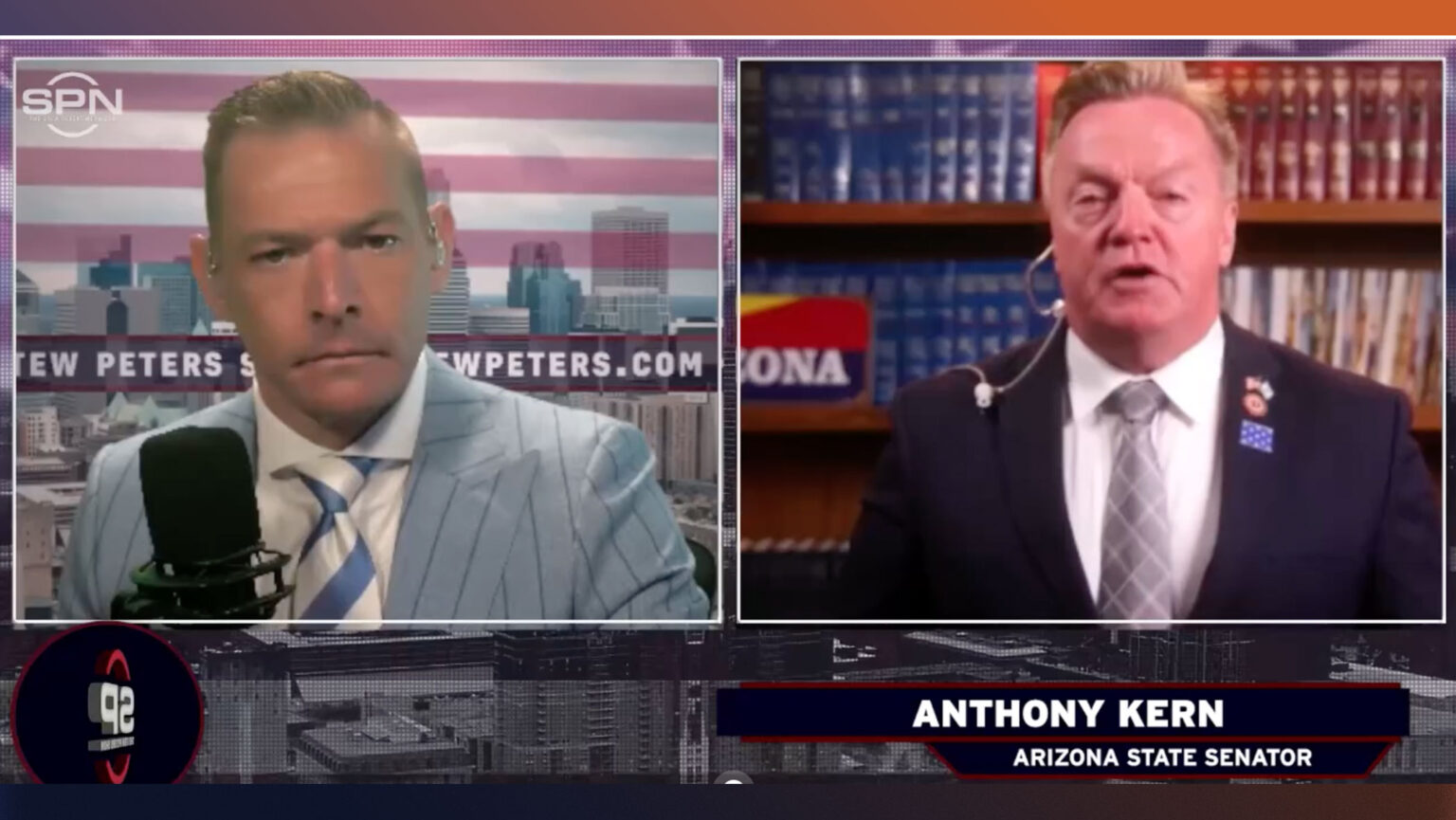
By Jerod MacDonald-Evoy | PHOENIX, Ariz. – A Glendale Republican lawmaker who was present for the violence at the U.S. Capitol on Jan. 6 and is facing criminal charges for being a fake elector used legislative video equipment to appear on a far-right talk show this week with a host who has declared Adolf Hitler a “hero.”
On May 1, Sen. Anthony Kern appeared on the Stew Peters show to discuss a Drag Story Hour that was hosted the day before in a basement meeting room in the Arizona House of Representatives. Kern joined the show live on video from the state Senate, which has a video broadcast studio.
The April 30 drag event in the House was hosted by Rep. Lorena Austin, D-Mesa, the nation’s first nonbinary Chicane legislator. When Republicans, who have spent the last several years crusading against drag and the LGBTQ community, learned about the event, it sparked an outcry.
Kern was the first to post about the event, and he specifically called out his GOP primary opponent for Arizona’s Eighth Congressional District, House Speaker Ben Toma, for allowing the event to take place.
On Peters’ show, Kern said he thought taxpayers would be outraged at the event for legislators and their staff.
“I said, ‘Hey, Arizona, this is where your tax dollars are going,’” Kern told Peters, appearing from the broadcast filming room on the Senate’s first floor used by lawmakers on both sides of the aisle to film videos.
Peters, a conspiracy theorist, has been increasingly showcasing antisemitism on his social media profiles and on his show. In promotional material, Peters has praised the mass book burning conducted by the Nazis in the lead up to World War II.
“They did exactly what reasonable people would do if given the opportunity,” Peters said of the Nazi book burnings. The video featured a montage of antisemitic propaganda created by Nazi Germany.
Peters praised Kern and made the false claim that the drag event in the House included children, calling the drag king that spoke to the small group Tuesday a “mentally ill satanic pedophile.” The event did not include children and Kern did not push back on any of Peters’ claims.

Peters attacked Toma, implying that the lawmaker could be a “pedohile” or a “groomer,” a term used frequently by anti-LGBTQ extremists to attack the LGBTQ community. The attention from conservative activists towards drag story hours has led to physical attacks on members of that community as well as other threats of violence.
“Is Ben Toma a pedophile? Is he a groomer?” Peters said on his show before Kern came on to speak. “He’s either incompetent or he is with the pedophiles. It is only one or the other.”
Neither Kern nor a Senate spokeswoman responded to multiple requests for comment. The Capitol broadcast team, who is in charge of the equipment, referred the Arizona Mirror’s inquiry to the Senate spokeswoman, Kim Quintero.
“I don’t know what to say other than Kern is irrelevant and will continue to be irrelevant in this race,” Toma told the Mirror. “He is not important enough for me to reply.”
Toma added that any decision on looking into if Kern inappropriately used Senate resources would be up to Senate President Warren Petersen. Toma also defended his position against the use of the Capitol basement for a drag story hour this week.
“I became aware of it fairly late, and it was already ongoing by the time I became aware of it,” Toma said, adding that he went in person to confirm the event was taking place Tuesday. “It wasn’t approved for that use. The use was supposed to be a stakeholder meeting.”
Democratic lawmakers have contended that they told Toma’s office that they intended to host the Drag Story Hour event when they reserved the room.
During the interview, Kern said that churches and Christians need to “rise up” as a remedy to fix the country’s problems.
“It is time for battle. This is our 1776 moment…We have to rise up and get our country back,” Kern said, adding that he believed God appointed Donald Trump to be president.
Kern, who was recently indicted by Arizona Attorney General Kris Mayes for his role in Donald Trump’s fake elector scheme, sparked controversy last month when he invited members of his church to pray and speak in tongues on the Senate floor ahead of key votes on abortion.
The move garnered national media attention, and Kern complained about it to Peters.
“So I led a prayer group down at the Capitol. Somebody filmed it. Somebody tweeted it out,” Kern said, adding that the media went “beserk.”
“While at the same time they can allow pedophiles, they can allow perverts, they can allow men dressed up as women, and just a perv show in the basement of our (House of) Representatives, and nothing from the media,” Kern said.
Kern, who was present at the U.S. Capitol on Jan. 6, said that God was “raising up” people like himself, Peters and Trump. He encouraged Peters’ viewers to get involved and for churches to “rise up.” Peters responded that his viewers need to organize militias.
“I’m talking about organizing with your neighbors in a militia format,” Peters said as Kern nodded in agreement. “Then advising, not asking permission, but advising your sheriff and advising your DA of exactly what you are willing to do to protect your life, your liberty and your property.”
Peters has called for violence at the U.S.-Mexico border, used racist terminology and has spoken at a white nationalist conference.
“I believe it has been inappropriate and irresponsible to vilify the LGBTQ+ community for extremist, cheap political points,” Austin said in a statement to the Mirror. “We are tired of fighting the battle to simply exist.”
******************************************************************************************

Reporter Jerod MacDonald-Evoy joined the Arizona Mirror from the Arizona Republic, where he spent 4 years covering everything from dark money in politics to Catholic priest sexual abuse scandals. He brings strong watchdog sensibilities and creative storytelling skills to the Arizona Mirror.
******************************************************************************************
The preceding article was previously published by the Arizona Mirror and is republished with permission.
Amplifying the voices of Arizonans whose stories are unheard; shining a light on the relationships between people, power and policy; and holding public officials to account.
Arizona Mirror is part of States Newsroom, the nation’s largest state-focused nonprofit news organization.
Arizona
GOP punish Dems over ‘drag story hour’ in AZ House basement.
Arizona Republican House Speaker Ben Toma says the Democrats can no longer access the building’s meeting rooms
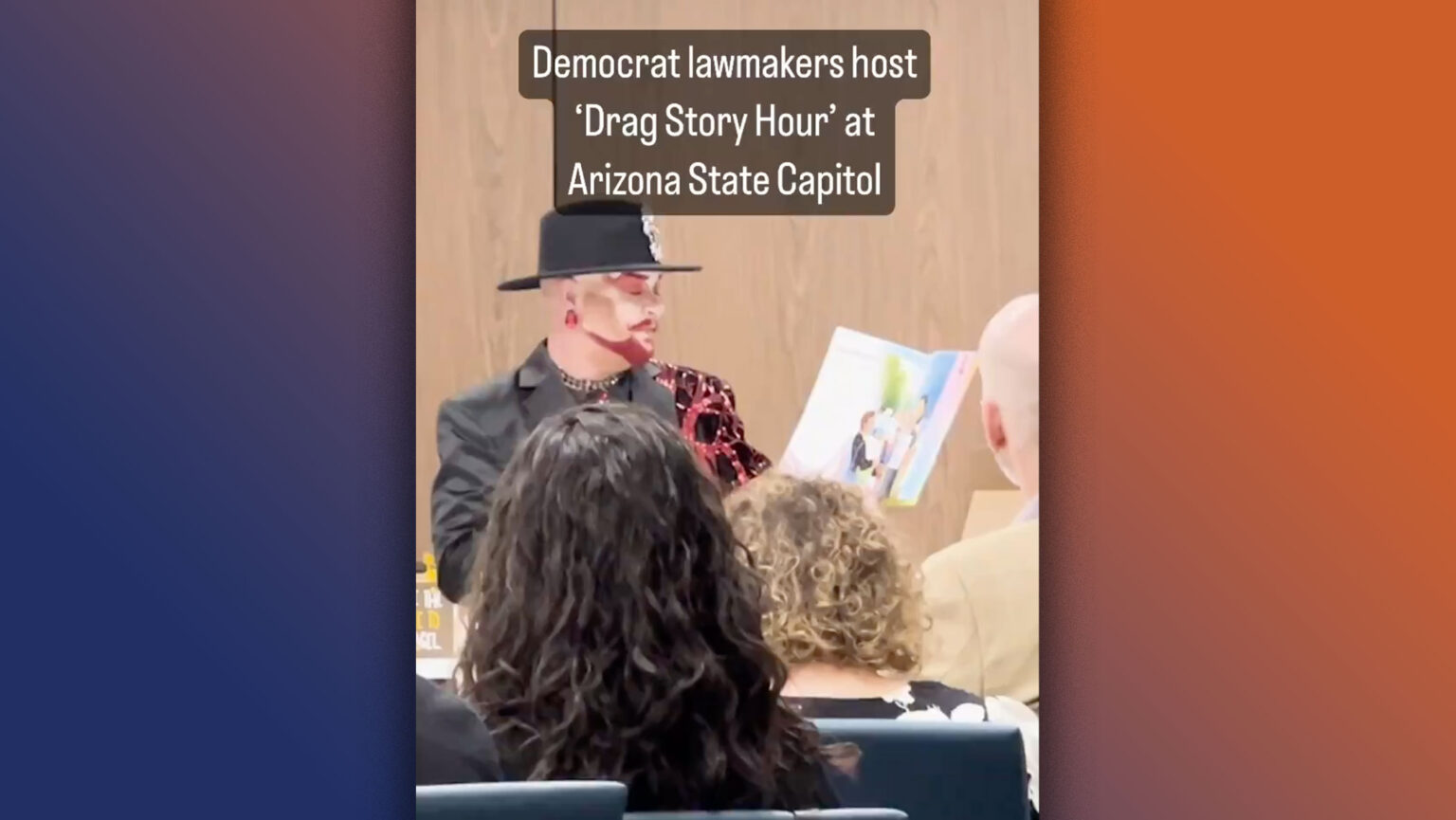
By Jerod MaCDonald-Evoy | PHOENIX, Ariz. – Democratic members of the Arizona House of Representatives are having their privileges to use meeting rooms in the chamber revoked after they used a room in the basement to host a drag story hour alongside Planned Parenthood on Tuesday.
Rep. Lorena Austin, D-Mesa, the nation’s first nonbinary Chicane legislator, reserved the room so that Planned Parenthood Advocates of Arizona could hold a drag story hour on Tuesday morning. When Republicans, who have spent the last several years crusading against drag and the LGBTQ community, learned about the event, it sparked an outcry.
“Democrat Rep. Lorena Austin deliberately misled House leadership to reserve a conference room to host a drag story hour with Planned Parenthood,” Speaker Ben Toma said in a post on X, formerly Twitter, Tuesday morning. “Use of House facilities for radical activism to promote dangerously perverse ideology will not be tolerated while I am speaker.”
Democrat Rep. Lorena Austin deliberately misled House leadership to reserve a conference room to host a drag story hour with Planned Parenthood.
— Ben Toma (@RepBenToma) April 30, 2024
Use of House facilities for radical activism to promote dangerously perverse ideology will not be tolerated while I am Speaker.
As… pic.twitter.com/yuOnkjn8zR
Toma went on to say that he ordered that Democratic members have “lost the privilege of accessing House meeting rooms until trust can be restored.”
Austin requested the use of the room for a Planned Parenthood stakeholder meeting and did not mention hosting a “drag story hour” event, according to House Republican caucus spokesman Andrew Wilder.
But Austin said the room was reserved for the legislature’s LGBTQ+ Caucus, of which she is a member, to meet with stakeholders on a day when the legislature is not in session.
“It is nothing short of ridiculous that I have been described as dishonest, deceitful and perverse and have been subjected to calls for punishment and expulsion,” Austin said in a statement. “We were completely transparent when we reserved the room, and the content was not, or should not be, controversial. In total approximately 20 people attended (all adults) because the House is currently only conducting business on Wednesdays, and today was a Tuesday.”
Austin said that the event was “educational and completely within the mission of our LGTBQ+ Caucus,” adding that she will “never apologize for teaching people to be inclusive, to accept others as they are, and to stand up to hate and bigotry.”
The condemnation of Democrats and the drag artist they invited to a meeting stands in stark contrast to the welcome that GOP lawmakers gave last week to anti-abortion activists who crowded the chamber as lawmakers debated — and ultimately passed — a bill to repeal an 1864 near-total abortion ban.
“I also want to address all of you in the gallery. I want to give you a friendly reminder this is not our House, it is your House,” Rep. Rachel Jones, R-Tucson, said April 24 on the House floor when introducing members of an Arizona anti-abortion group that were in the gallery.
Jones said Tuesday that the drag story hour was a “desecration of the people’s house.”
“I guess this isn’t the people’s House after all,” House Democratic Whip Nancy Gutierrez said in a statement from House Democrats Tuesday afternoon. “No one was misled about scheduling this event. It was described as a drag story hour when Representative Austin’s assistant called to reserve the room. I was there.”
Gutierrez said that she and others “listened to a person wearing makeup and a sparkly outfit read a book and some poems about inclusion, acceptance, and LGBTQ history” calling it “lovely, funny and inspiring,” pushing back on claims of it being “perverse” as Republicans have said.
“We have had anti-abortion activists welcomed into the House to sing and jeer and mock our members, while our entire caucus has been banned from using House conference rooms because of how a person was dressed and what they had to say,” Gutierrez said. “Our leadership and Representative Austin have spoken with Speaker Toma to get the facts on the table and reduce the tension. We are working toward a resolution but are not all the way there yet. We will always stand with our members and constituents in the face of discrimination, and we denounce any kind of knee-jerk retaliation.”
Republican state Sen. Anthony Kern, from Glendale, was the first to post about the event on social media, specifically calling out Toma. Kern is Toma’s opponent in the GOP primary for Arizona’s Eighth Congressional District.
Kern, who was recently indicted by Arizona Attorney General Kris Mayes for his role in a fake elector scheme, has invited members of his church ahead of key votes on abortion issues where they spoke in tongues on the floor.
Drag story hours have become a target of conservative activists and far-right extremists who make dubious claims that the events are meant to “groom” children into accepting LGBTQ beliefs or pedophilia. The attention has led to physical attacks on members of that community as well as other threats of violence.
In a statement to the Mirror, Drag Story Hour Arizona, whose organizers have become targets by conservative activists, said they were invited by Austin and Planned Parenthood Advocates of Arizona to the Capitol
“This morning, Drag Story Hour Arizona was invited by Rep. Lorena Austin and Planned Parenthood Advocates of Arizona to present a special story hour for legislators and staffers at the state capitol,” the statement said. “We appreciated the opportunity to meet members of our legislature and educate them about our organization and how we promote inclusive early childhood literacy.”
No children were present at the drag story hour in the House basement on Tuesday.
“The fascism continues at the State House under GOP control,” Rep. Analise Ortiz, D-Phoenix, said on X. “Speaker Toma, Rep. Austin is a duly elected representative of the people who has the same rights as you to welcome community members to THEIR house. This event is hurting no one. Cut the nonsense.”
“This is just another example of Speaker Toma showing how out of touch he is with the values of Arizonans and their support for the LGTBQ community,” Planned Parenthood Advocates of Arizona President and CEO Angela Florez said in a statement to the Arizona Mirror.
We are PROUD to have collaborated with @LorenaAustin4Az and our community’s local Drag Story Hour to create a safe learning literacy space!
— Planned Parenthood Advocates of Arizona (@ppazaction) April 30, 2024
One of the best ways to support the LGBTQ+ community is to educate yourself. Visit our website for resources💓 https://t.co/nOWev49BxO https://t.co/3OmdbLZIq4 pic.twitter.com/fZcSuEXH0w
“Let’s be clear, at Planned Parenthood Arizona we are proud to offer gender affirming care services and provide essential health care to everyone. We thank Rep. Lorena Austin for being a staunch ally and her continued support in our fight for reproductive freedom,” Florez said. “We will be sure to invite Speaker Toma to the next Drag Story Hour.”
Kern and Sen. Justine Wadsack, a Republican from Tucson, have both called for ethics complaints to be filed. Wadsack has also said Austin should be expelled. Kern has attempted to pass legislation that would have criminalized drag performances. The measure was vetoed by Gov. Katie Hobbs. Other republicans are also calling for Toma to restrict Austin’s access in the House.
******************************************************************************************

Reporter Jerod MacDonald-Evoy joined the Arizona Mirror from the Arizona Republic, where he spent 4 years covering everything from dark money in politics to Catholic priest sexual abuse scandals. He brings strong watchdog sensibilities and creative storytelling skills to the Arizona Mirror.
******************************************************************************************
The preceding article was previously published by the Arizona Mirror and is republished with permission.
Amplifying the voices of Arizonans whose stories are unheard; shining a light on the relationships between people, power and policy; and holding public officials to account.
Arizona Mirror is part of States Newsroom, the nation’s largest state-focused nonprofit news organization.
Arizona
Arizona Governor vetoes anti-trans, Ten Commandments bills
In a statement, the bill’s sponsor, Sen. Anthony Kern, R-Glendale, accused Hobbs of “abandoning God” with her veto

By Caitlin Sievers | PHOENIX, Ariz. – A slew of Republican bills, including those that would have allowed discrimination against transgender people and would have given public school teachers a green light to post the Ten Commandments in their classrooms, were vetoed by Gov. Katie Hobbs on Tuesday.
Hobbs, who has made it clear that she’ll use her veto power on any bills that don’t have bipartisan support — and especially ones that discriminate against the LGBTQ community — vetoed 13 bills, bringing her count for this year to 42.
Republicans responded with obvious outrage to Hobbs’ veto of their “Arizona Women’s Bill of Rights,” which would have eliminated any mention of gender in state law, replacing it with a strict and inflexible definition of biological sex. The bill would have called for the separation of sports teams, locker rooms, bathrooms and even domestic violence shelters and sexual assault crisis centers by biological sex, not gender identity, green-lighting discrimination against transgender Arizonans.
“As I have said time and again, I will not sign legislation that attacks Arizonans,” Hobbs wrote in a brief letter explaining why she vetoed Senate Bill 1628.
The Arizona Senate Republicans’ response to the veto was filled with discriminatory language about trans people and accused them of merely pretending to be a gender different than they were assigned at birth.
“With the radical Left attempting to force upon society the notion that science doesn’t matter, and biological males can be considered females if they ‘feel’ like they are, Katie Hobbs and Democrats at the Arizona State Legislature are showing their irresponsible disregard for the safety and well-being of women and girls in our state by killing the Arizona Women’s Bill of Rights,” Senate Republicans wrote in a statement.
The Senate Republicans went on to accuse the Democrats who voted against the bill of endangering women.
“Instead of helping these confused boys and men, Democrats are only fueling the dysfunction by pretending biological sex doesn’t matter,” Senate President Warren Petersen said in the statement. “Our daughters, granddaughters, nieces, and neighbors are growing up in a dangerous time where they are living with an increased risk of being victimized in public bathrooms, showers, and locker rooms because Democrats are now welcoming biological males into what used to be traditionally safe, single-sex spaces.”
But transgender advocates say, and at least one study has found, that there’s no evidence allowing transgender people to use the bathroom that aligns with their identity makes those spaces less safe for everyone else who uses them.
In the statement, the bill’s sponsor, Sen. Sine Kerr, R-Buckeye, claimed that the bill would have stopped transgender girls from competing in girls sports, something she said gives them an unfair advantage. But Republicans already passed a law to do just that in 2022, when Republican Gov. Doug Ducey was still in office, though that law is not currently being enforced amidst a court challenge filed by two transgender athletes.
Republicans also clapped back at Hobbs’ veto of Senate Bill 1151, which would have allowed teachers or administrators to teach or post the Ten Commandments in public school classrooms, a measure that some Republicans even questioned as possibly unconstitutional.
In a statement, the bill’s sponsor, Sen. Anthony Kern, R-Glendale, accused Hobbs of “abandoning God” with her veto.
“As society increasingly strays away from God and the moral principles our nation was founded upon, Katie Hobbs is contributing to the cultural degradation within Arizona by vetoing legislation today that would have allowed public schools to include the Ten Commandments in classrooms,” Kern said in the statement.
In her veto letter, Hobbs said she questioned the constitutionality of the bill, and also called it unnecessary. During discussion of the bill in March, several critics pointed out that posting the Ten Commandments in public school classrooms, tenets of Judeo-Christian religions, might make children whose families practice other religions feel uncomfortable.
“Sadly, Katie Hobbs’ veto is a prime example of Democrats’ efforts to push state-sponsored atheism while robbing Arizona’s children of the opportunity to flourish with a healthy moral compass,” Kern said.
Another Republican proposal on Hobbs’ veto list was Senate Bill 1097, which would have made school board candidates declare a party affiliation. School board races in Arizona are currently nonpartisan.
“This bill will further the politicization and polarization of Arizona’s school district governing boards whose focus should remain on making the best decisions for students,” Hobbs wrote in her veto letter. “Partisan politics do not belong in Arizona’s schools.”
******************************************************************************************

Caitlin joined the Arizona Mirror in 2022 with almost 10 years of experience as a reporter and editor, holding local government leaders accountable from newsrooms across the West and Midwest. She’s won statewide awards in Nebraska, Indiana and Wisconsin for reporting, photography and commentary.
******************************************************************************************
The preceding piece was previously published by the Arizona Mirror and is republished with permission.
Amplifying the voices of Arizonans whose stories are unheard; shining a light on the relationships between people, power and policy; and holding public officials to account.
Arizona Mirror is part of States Newsroom, the nation’s largest state-focused nonprofit news organization.
Arizona
Ariz. GOP lawmaker: U.S. ‘unrighteous’ because of LGBTQ people
“Monday’s sermon was a cynical display of religious intolerance, which used a coincidence in the calendar to attack LGBTQ+ Arizonans”
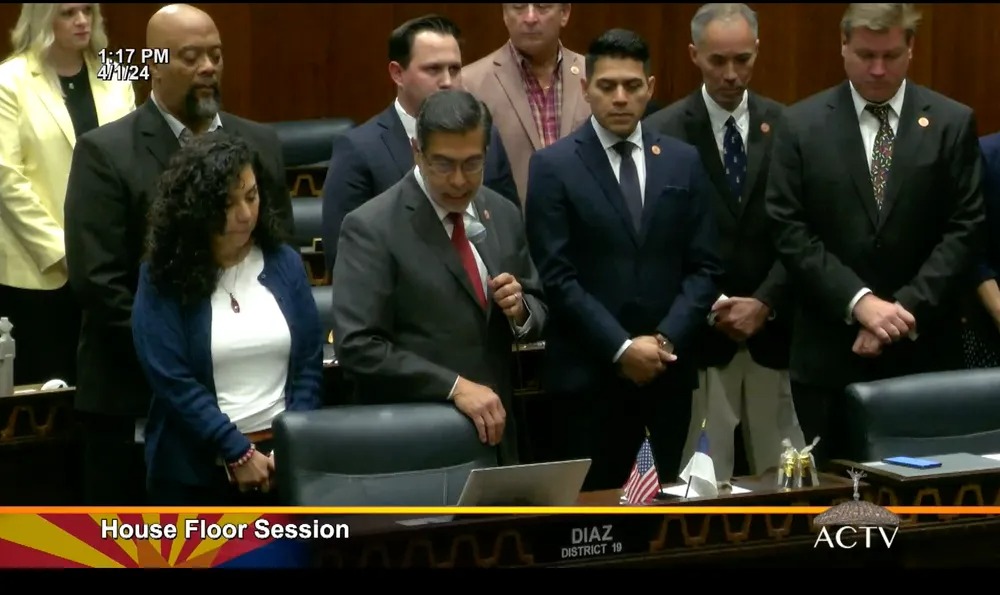
By Joseph Darius | (LOOKOUT) PHOENIX, Ariz. – A state legislator on Monday used his time delivering a sermon that said a holiday to celebrate trans people was “dark,” proof of America being “unrighteous,” and then denounced non-Christians.
The sermon was given as the House of Representatives opened its daily floor session, during which lawmakers convene to vote on bills passed through committees. Every day, the House and Senate open their floor sessions with a prayer that is meant to be non-denominational, but Republicans who control both chambers have long only used Christians to speak.
But Rep. Lupe Diaz (R-Benson), who is also a minister, went a step further in his opening prayer Monday, and spent nearly five minutes on a fire-and-brimstone-styled sermon against non-Christians: “Eternal life is not available just to everybody, it is available just to those that acknowledge Jesus Christ,” Diaz said on the House floor.
The evangelical speech was given as a reaction to International Transgender Day of Visibility, which happened to be at the same time as Easter Sunday this year. (Easter changes yearly, whereas the Day of Visibility has been recognized on March 31 every year since 2009.)
Diaz incorrectly said that Pres. Joe Biden proclaimed the holiday on the same day as Easter this year, and went on to say that it was “proof” of “light” versus “dark,” and then followed up with saying the U.S. was an “unrighteous nation.”
LOOKOUT reached out to Diaz on Tuesday via email and through his secretary asking if he knew how Easter was scheduled, as well as if his comments reflect on his ability to govern or work with people of different religious denominations. His office did not respond by the given deadline.
No Republicans have commented on the sermon or Diaz’s comments.
Diaz does not hide his preference of combining state politics with his personal religion. His main website brandishes a large cross overlaying the American flag. it also says he began a career in civil service after “God called him to reach out to his community.”House Democrats, though, argued back moments after Diaz concluded. Rep. Lorena Austin (D-Mesa), one of the nation’s only non-binary lawmakers, said that “the Jesus I grew up learning” was kind and compassionate and doesn’t denounce anyone.
“A prayer is not a sermon,” Austin said. “And we were elected to serve the people and make laws to make their lives better, not condemn them.”
In statements released by the Arizona LGBTQ+ Legislative Caucus, Rep. Patty Contreras (D-Phoenix) said that the speech was religious bigotry on full display:
“Monday’s sermon was a coordinated and cynical display of religious intolerance, which used a coincidence in the calendar to attack LGBTQ+ Arizonans, and anyone who doesn’t fall in line with one member’s view of Christianity,” said Contreras, who is the vice-chair of the caucus.
Rep. Oscar De Los Santos (D.-Phoenix) who is also vice chair echoed Contreras’s statement, saying: “I stood and respectfully listened as my colleague damned me to Hell, but it is outrageous to hear such intolerance, divisiveness and disrespect directed at so many Arizonans inside the People’s House, with Republican members standing in support. This was a shameful moment.”
******************************************************************************************

Joseph Darius Jaafari is the executive editor of LOOKOUT, a queer-focused nonprofit newsroom that aims to push LGBTQ+ stories to the front of people’s minds.
******************************************************************************************
The preceding article was previously published by the Arizona Mirror/LOOKOUT and is republished with permission.
Arizona Mirror is amplifying the voices of Arizonans whose stories are unheard; shining a light on the relationships between people, power and policy; and holding public officials to account.
Arizona Mirror is part of States Newsroom, the nation’s largest state-focused nonprofit news organization.
Arizona
Senator breaks with GOP: Arizona anti-trans ballot measure dies
In a stunning defeat for anti-trans activists in Arizona, SCR1013 will not appear on the November ballot in the state
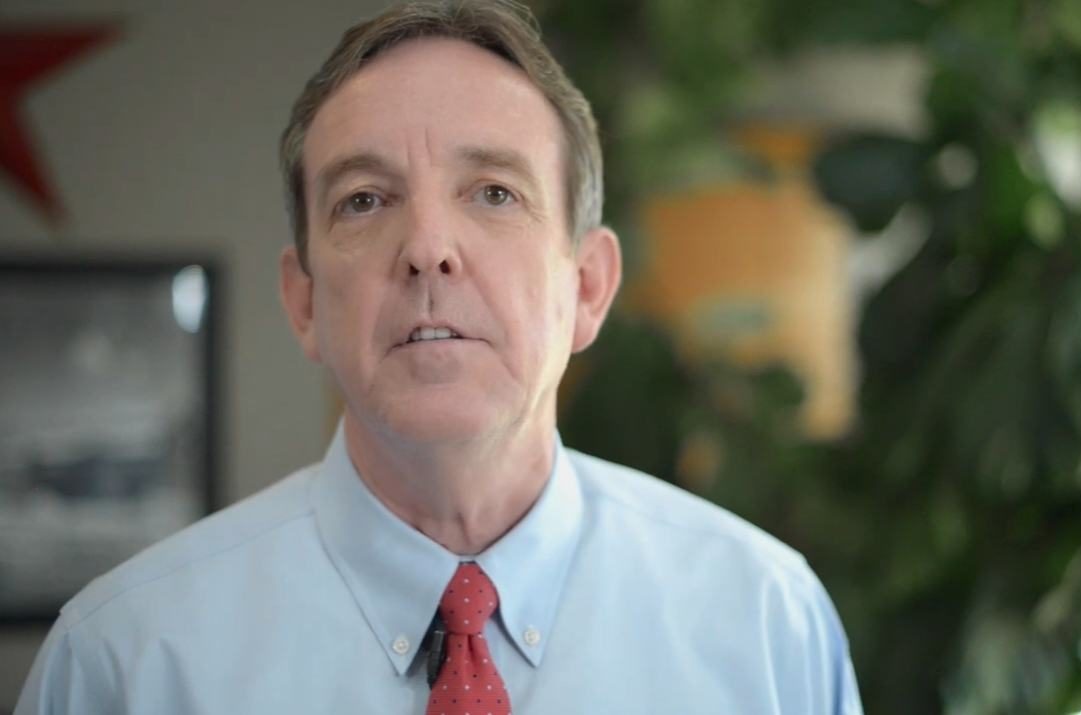
By Erin Reed | PHOENIX, Ariz. – In a stunning defeat for anti-trans activists in Arizona, a major bill targeting transgender people in schools has failed. The bill, Senate Concurrent Resolution 1013, would have banned transgender students from using bathrooms matching their gender identity. It also would have forced teachers to misgender their transgender students unless parental permission was received.
Most importantly, the bill would have placed the issues on the November election ballot, bypassing Arizona Gov. Katie Hobbs’ veto, which has been used against similar legislation. This represents the first major ballot referendum on transgender people that has been defeated in 2024 and could signal Republican hesitancy around the electoral impacts of such referendums.
The bill was brought forward by Sen. John Kavanaugh, who has previously sponsored other legislation targeting transgender people in schools. Sen. Kavanaugh’s district includes portions of Scottsdale, Arizona, which is notably the same city where the Alliance Defending Freedom (ADF) is headquartered.
The ADF has been intricately involved in the drafting and defending of anti-trans laws across the United States this year and has backed Chloe Cole, who is leading a similar referendum effort in California.
In the Senate Education Committee earlier this month, over 500 people registered opposition to the bill, and only 32 registered in favor, one of the most lopsided testimony ratios in any bill this year nationwide. Speaking against the bill in the hearing, Democratic Sen. Marsh pointed out the negative consequences that hearing such a bill would have, stating, “This will become a debate on a statewide level harming god knows how many kids and forcing them into further isolation, harassment, bullying, victimization, and vulnerability that comes. I think the effect of that will be incalculable.”
When it came time for a committee decision, Republican Sen. Ken Bennett voted in favor of the bill but stated he had concerns with the way the bill was written and that he would have trouble supporting it for final passage in the Senate.
Then, on Monday, the bill was brought forward for a final vote on the full Senate floor. Democratic senators read statements from parents and trans youth who would be impacted by the bill as the votes rolled in. Then, Republican Sen. Bennett voted “no,” explaining his vote: “I am very concerned about putting this bill to a vote of the people. These bills combined are roughly a third of the entire US Constitution. When we put things on the ballot for people to vote on them, if something goes awry, if there are unintended consequences, we have to go back to the people to fix it.”
The defeat means that in Arizona, the question will not advance to the November ballot. However, in other states, ballot measures are currently being pursued. In California, the group “Protect Kids California” has enlisted high-profile anti-trans activists such as Chloe Cole and Chris Elston to collect signatures. Measures there would out transgender students to their parents, ban them from participating in sports and using bathrooms that match their gender identity, and would ban gender-affirming care for trans youth. Similar ballot measures are also being pursued in Colorado. Nevertheless, with the defeat of SCR1013, there may be hesitancy to push for this as a major ballot issue in 2024 in a swing state like Arizona.
Anti-LGBTQ legislation is not highly popular, especially in general election contests. In the most recent school board elections in 2023, Moms for Liberty lost 70% of their school board elections, having run primarily on anti-trans issues in schools. Meanwhile, Democrats took the House and Senate in Virginia after Gov. Glenn Youngkin pushed a party platform at rallies that targeted trans youth throughout the state. Anti-trans politics have also previously failed to help Republicans in Arizona. In the 2022 governor’s race, Republicans attempted to target Gov. Katie Hobbs’ husband for providing counseling for trans youth in the closing weeks of the campaign—a gambit that failed to swing results in their favor.
That is certainly what Gaelle Esposito, a partner at Creosote Partners who has worked with major organizations supporting transgender people in the state, believes. When asked about what the bill’s defeat says in an election year, she responded, “we are also starting to see that Republicans recognize that anti-trans hatred and pure bigotry is not a big winner for them. It’s not like they have seen time and again, including here in Arizona, that this just doesn’t play well with voters. It doesn’t sit well with people.”
Esposito added a hopeful message: “The fact that we didn’t see the full force of their network trying to squeeze them to get this on the ballot shows they know it too. That they, in an election year here in Arizona, where so much is critical for them, this went down in flames… I think shows how the tide is turning in our favor.”
***************************************************************************

Erin Reed is a transgender woman and researcher who tracks anti-LGBTQ+ legislation around the world and helps people become better advocates for their queer family, friends, colleagues, and community. Reed also is a social media consultant and public speaker.
The preceding post was previously published at Erin in the Morning and is republished with permission.
Arizona
Iconic Scottsdale Arizona LGBTQ+ bar calls it quits after 35 years
The sudden announcement caught many in the LGBTQ+ community off-guard BsWest Scottsdale in the Northeast Valley opened in 1988
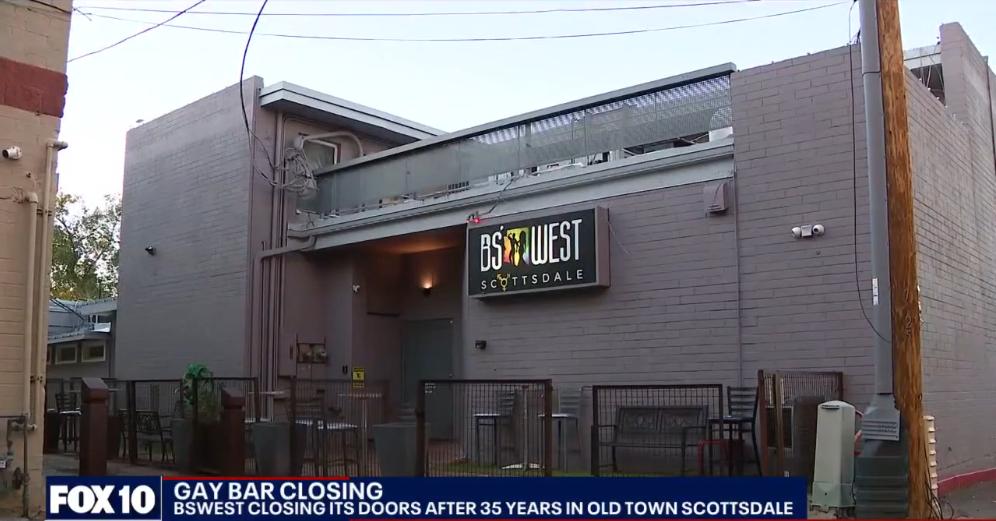
SCOTTSDALE, Ariz. – One of the oldest LGBTQ+ bars in the Northeast Valley area of metropolitan Phoenix announced on its social media accounts Tuesday that the bar will close forever this weekend on January 7.
The sudden announcement caught many in the LGBTQ+ community off-guard
BsWest Scottsdale opened in 1988, and in their Facebook post, the owners noted:
“As we approach the end of an era, we wish to extend our deepest appreciation and best wishes to those who made our journey meaningful,” read the post. “Thank you to the family of staff, show casts, partners and loyal patrons who helped us create a safe space and loving atmosphere over the years.”
The club took up two floors at its Fifth Avenue location where it hosted drag shows, trans nights and go-go dancers and became known as a safe space and go-to for the LGBTQ+ community.
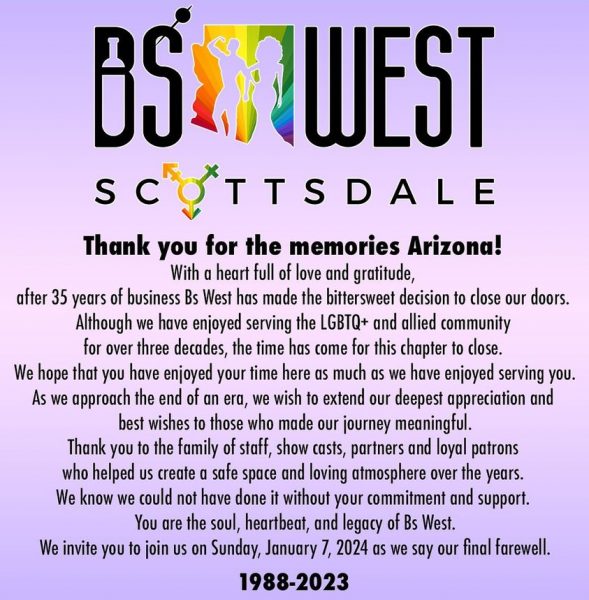
Reacting to the news, many of the club’s clientele posted comments reflecting their feelings:
Matt Peters: Thank you for the memories. This place was my go to bar in the late 90’s. So many amazing friendships. Thank you ![]()
Patrick Keown: ![]() aww BS was everything in my twenties! Thanks for so many great memories….. farewell & much love.
aww BS was everything in my twenties! Thanks for so many great memories….. farewell & much love.
JR de Luna: As a patron most of those years, it’s sad to see this closing chapter. Many great memories and lifelong friendships made. Farewell BS, you will be missed ![]()
Peter J Hegarty II: Soooo very sorry to hear this news. I’ve had plenty of great times there, after coming out 14 years ago. The bartenders on up have been the best.
P Joseph Rooney: I met my husband here ![]() It’s sad to see y’all go. First bar I ever went to, too.
It’s sad to see y’all go. First bar I ever went to, too.
The bar’s Facebook post noted: Thank you family to staff, Show Casts, partners, and loyal patrons. Thank you community. The last few shows will continue through this week. Final good-bye will be Sunday Jan. 7th 2024.
Thank you all ![]()
![]()
Arizona
Arizona Governor issues order banning conversion therapy
Hobbs also signed an executive order to ensure the state employee health care plan covers medically-necessary gender-affirming surgery
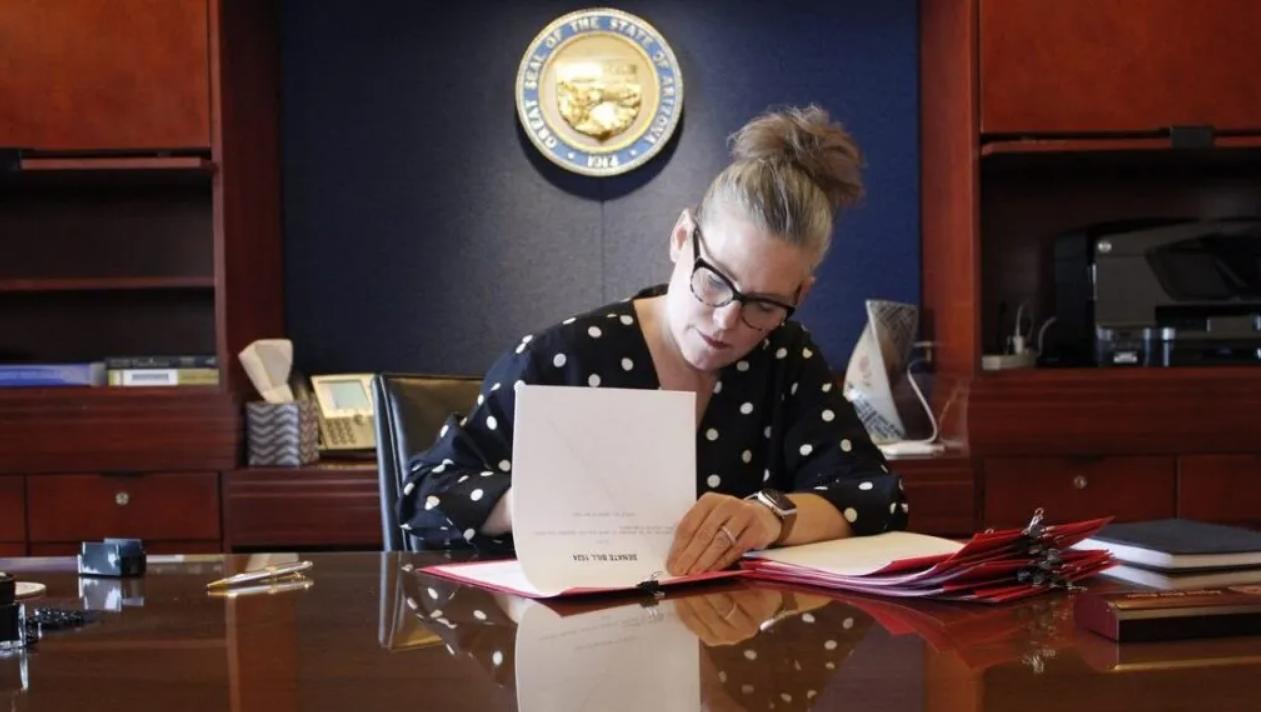
PHOENIX – Arizona Governor Katie Hobbs signing an executive order Tuesday banning the dangerous and discredited practice of conversion therapy. With the signing of this executive order, Arizona is now the 27th state in the country to enact protections against the practice of conversion therapy.
Hobbs also signed an executive order to ensure the state employee health care plan covers medically-necessary gender-affirming surgery.
“Our LGBTQ+ community should never have to face hate and discrimination, and I will do everything in my power to fight for full equality,” said Governor Hobbs. “The State is leading by example on this issue, and we will continue working until Arizona is a place where every individual can participate equally in our economy and our workforce without fear of discrimination or exclusion.”
As outlined in the Executive Order restricting conversion therapy, State Agencies will implement policies to actively protect LGBTQ+ minors from the harmful effects of conversion therapy and ensure public funds are not spent on these dangerous practices.
The American Psychological Association found that conversion therapy contributes to increased risk of suicide, depression, and substance use throughout an individual’s life. Additionally, the federal Substance Abuse and Mental Health Services Administration has determined that conversion therapy should not be a part of any behavioral health treatment.
“Equality Arizona is excited to see Governor Hobbs take bold executive action to protect the LGBTQ+ community,” said Jeanne Woodbury, Interim Executive Director for Equality Arizona. “Protecting Arizonans from fraudulent and harmful treatment is exactly what we elect our statewide leaders to accomplish, and taking action against conversion therapy is long overdue.”
Read the Executive Order on Ensuring Access to Medically Necessary Gender-Affirming Healthcare HERE.
Read the Executive Order on Protecting Young People from Conversion Therapy HERE.
Arizona
Arizona bill passes- parents can sue teachers for ‘usurping’ parental rights
“The consistent targeting of LGBTQ youth by the Arizona Legislature is a disgrace. School is sometimes the only place these kids feel safe”

PHOENIX – A bill that allows parents to sue teachers for ‘usurping’ parental rights passed the state senate this week and is headed to the House for a final vote before being sent to Republican Governor Doug Ducey for his signature.
House Bill 2161, authored by Rep. Steve Kaiser, R-Phoenix, initially was crafted to make it illegal for a government employee to withhold information that is “relevant to the physical, emotional or mental health of the parent’s child,” and specifically prevents teachers from withholding information about a student’s “purported gender identity” or a request to transition to a gender other than the “student’s biological sex.”
The bill would allow parents to sue school districts if teachers don’t comply.
After considerable opposition and uproar the bill was reworked with that specific language removed although the bill’s language now prohibits a school, political subdivision or government from “usurping the fundamental right” of a parent in raising their children, allows a parent to bring a civil suit against any government entity or official that violates the Parents’ Bill of Rights in Arizona law, gives parents the rights to all written or electronic records from a school about their child — including a students counseling records — and requires schools to notify parents before a survey is conducted of students, among other changes.
LGBTQ+ advocacy groups and others charge that the vagueness of the current language would still expose educators to the risk of being sued. The Arizona Mirror reported that Sen. Christine Marsh, a Phoenix Democrat and the 2016 Arizona Teacher of the Year said that “I am a hard ‘no’ on this bill,” when explaining her vote on the Seante floor Monday afternoon. She added that the vague wording of “usurping the fundamental right” in the bill will likely lead to many parents filing lawsuits.
“Anything could potentially qualify for it so we might have a whole bunch of teachers going to court for this,” she added.
Those concerns were also echoed by her Democratic Senate colleagues the Mirror reported during committee hearings on the bill who feared that if passed, the bill could see librarians getting in trouble for recommending books that conflict with a parent’s worldview.
Rep. Daniel Hernández told the Blade on Wednesday, “The consistent targeting of LGBTQ youth by the Arizona Legislature is a disgrace. School is sometimes the only place these kids feel safe. I encourage Arizona lawmakers to tackle bringing down prices and fixing our roads and bridges instead of making life harder for an already vulnerable group of students.”
Arizona Republic news columnist and longtime capital observer EJ Montini noted in his column Tuesday:
“For years, the Republican majority in the Arizona Legislature has waged war on public education, most specifically targeting teachers. Low pay. Ridiculous expectations. Insults. Intimidation,” he wrote.
“Working its way through the Legislature so that it may soon land on Gov. Doug Ducey’s desk is House Bill 2161, a dangerously obtuse piece of legislation that would allow parents to sue teachers and other government officials if they “usurp” a parent’s “fundamental right to direct the upbringing, education, health care and mental health of their children.”
What does that mean, exactly? Well, your guess is as good as mine. As good as anybody’s.
By the looks of it, HB 2161 is a way for lousy parents to sue good teachers. Essentially, it presents the cynical notion that teachers know the children in their classes better than the children are known by their mothers and fathers. And that teachers have more influence over children than their mothers and fathers,” Montini wrote.
Equality Arizona and other LGBTQ+ advocacy groups are raising the alarm that House Bill 2161 specifies that parents are allowed to object to instructional materials if it “questions [their] beliefs or practices in sex, morality or religion.”
This language has been labeled as a pathway to ‘Don’t Say Gay’ practices by activists.
HB2161 also spells out that parents must also be notified in advance if a teacher plans to incorporate “sexuality” into instructional materials other than sex education, and will be given the option to opt their children out.
The bill would also prohibit school districts from offering sex education to students unless their parents sign a permission slip allowing them to participate. But even if a parent allows their child to receive sex education, this bill specifically would give them the “right” to ban their child from learning about AIDS.
The dangerous portion of the bill’s language that activists say will seriously harm LGBTQ+ youth are provisions that would give parents the right to access all written and electronic records pertaining to their child, including participation in extracurricular activities and clubs, counseling records, reports of behavioral patterns, and email and other online accounts.
If an LGBTQ+ youth was not Out at home or was having problems that language could endanger the young person and compounds the problem by putting teachers who are assisting LGBTQ+ youth at risk of lawsuits.
The bill passed 16-12. Because it was amended in the Senate, it returns to the House of Representatives for a final vote possibly this week, after which it would go to Gov. Ducey for his signature.
-

 Arts & Entertainment4 days ago
Arts & Entertainment4 days ago2025 Best of LGBTQ LA Finalist Voting
-

 Bars & Parties2 days ago
Bars & Parties2 days agoBear World Magazine gives the bear community a mighty roar
-

 Features2 days ago
Features2 days agoMeet the new co-presidents of the NLGJA LA Chapter
-

 a&e features3 days ago
a&e features3 days agoAnthony Nunziata Performs the Great Palm Springs Songbook
-

 Local4 days ago
Local4 days ago‘Housing Now!’: Advocates plan to wrap City Hall in red tape
-

 Bars & Parties3 days ago
Bars & Parties3 days agoRocco’s 2.0 is looking to the past to celebrate the future
-

 Commentary3 days ago
Commentary3 days agoOn Pope Francis, Opus Dei and ongoing religious intolerance
-

 Events2 days ago
Events2 days agoCelebrate Lesbian Visibility Week with The Curve Foundation
-

 Congress2 days ago
Congress2 days agoDemocratic lawmakers travel to El Salvador, demand information about gay Venezuelan asylum seeker
-

 The Vatican4 days ago
The Vatican4 days agoPope Francis dies at 88

